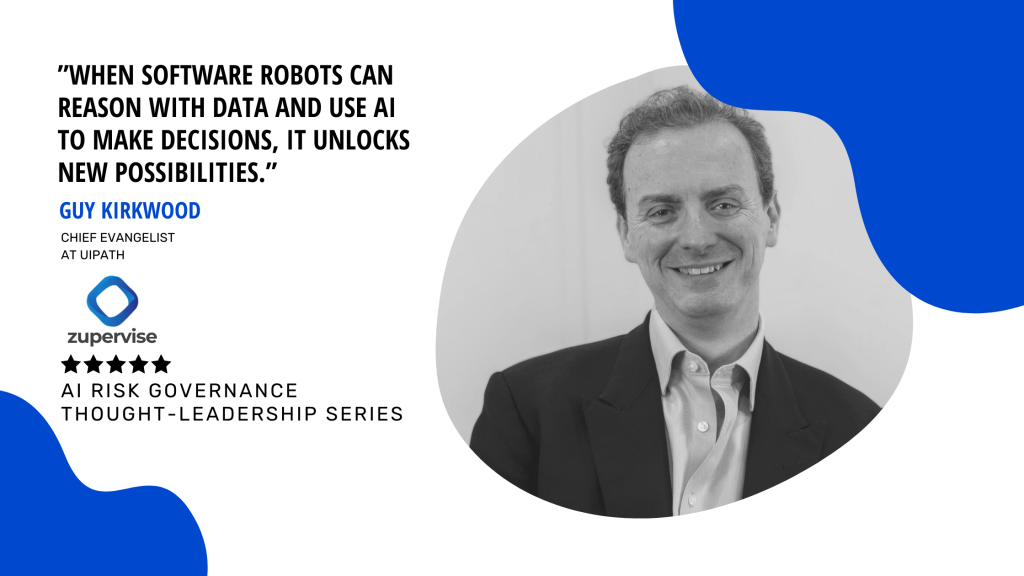
AI promises significant competitive advantage for the industrial manufacturing vertical. Explore this thought-leadership interview with our guest Rashmi Kasat to learn more about what this might mean for your organisation.
What are the transformational changes happening in industrial manufacturing?
In the industrial sector, particularly in OEMs serving process industries, there’s an increasing demand from customers for equipment, process and plant optimisation. As an example, in the mining industry, where I work, as natural mineral resources of high grade are depleting, there’s an emerging need for higher productivity while optimally using energy & water. Megatrends like rapid electrification e.g. EVs will drive demand of certain commodity metals which means more needs to be produced for least environmental impact and in an efficient way.
Also, customer industries operating in more challenging environments are aiming for zero harm, so by introducing advanced automation and digitalisation, operations can be made safer. In most of these industries, there’s also a big shift coming in the change of generation – some of the most experienced experts of the industry will eventually retire and a new generation of workers need to be attracted to work in traditional industries.
The new and more digitally-savvy generation would expect levels of consumer-grade convenience in transactions and operations, similar to digital services like mobile-commerce, subscriptions service models & automated processes. This results in an inherent expectation for more digitalisation, automation, better and simpler customer experience.
What role does digital play in supporting this transformation?
When it comes to process and equipment optimisation for example, the role of digital and automation will be tremendous and transformative in the coming decade. Like I said, a lot of knowledge in these industries is tacit and in an unstructured format. Also, worth noting is that in the process industry there’s a lot of process disturbances which are nearly impossible for humans to keep control of. Then there are external factors like commodity price variations.
Well-modelled machine-learning algorithms can follow trends in data over time with respect to other process variables and external changes. Based on the trends and optimal benchmarks, they can then adjust the process parameters within safe limits to optimise the process or equipment performance.
Also, equipment condition monitoring can be aided by machine learning algorithms that are industry and process-specific. So when components are close to failure, machine learning algorithms can predict such failure based on several different parameters of data and by analysing several gigabytes of incoming streams of data from the sensors within or around the equipment, or the process. This is a task which in its traditional form would be left solely to the best judgement of operators. Now AI algorithms can assist the operators and plant managers in predicting failures before they occur and prevent unplanned shutdowns which in turns translates to tremendous savings for a processing plant.
How do you get started with AI?
With the advent of the industrial internet of things, AI has been used in industrial sectors already for some time in some form or shape e.g. in predictive analytics supporting condition monitoring. The benefits can be scaled by algorithms and combining equipment and process knowledge to analyse all key failure modes.
In process optimisation, AI can augment already existing advanced process control logic to provide even more accurate, reliable & context-relevant process control and optimisation scenarios. Here again data and analytics can support operators in deploying the most optimal process optimisation strategy. In some cases, the whole process can be made autonomous and self reliant once the algorithms have become robust.
What are the challenges with deploying this AI?
Having come from a strong technology transformation consulting background, I can say that it’s not so much about the technology. With focused efforts and the right investments, many things described above are already possible with advanced technology.
People hesitate to buy or employ AI or analytics which they don’t understand and this is very understandable. This emphasizes the importance of AI safety & AI transparency. This is why it’s extremely important to work together with the users on defining, testing and deploying such solutions. Also, human experts need to be working side by side with the AI algorithms to interpret the AI – why a particular decision was made, how the AI works and in assessing the different deployment scenarios.
In my view the role of human experts becomes even more prominent in building trust, and in supporting the transition to more efficient ways of working with AI.
How does an AI-enabled future look like for your industry?
AI has the potential to enable a fully autonomous future but it’s still too early for that. Until trust is fully instilled in AI technologies & its decision traceability, human experts will closely supervise AI recommendations & some kind of intermediate semi -autonomous state may be more feasible. This holds true for all new technologies, it takes time & trust for transformation to happen & for technologies to mature & scale.
Involving human experts closely in building, testing, iterating AI solutions is an important step in securing the trust of stakeholders. Human experts will have a more consultative role in combination with AI technologies. The experts will carefully analyse the applicability, feasibility and scope of AI in a context, model it to the needs of the industry by combining tacit knowledge with hard data, test it thoroughly on a wide variety of data and make the algorithms more robust with each iteration.
Rashmi Kasat leads Digital technologies for Metso Outotec’s minerals equipment business in Helsinki. In her role, she develops & executes the strategy for digitalisation, advanced automation of equipment & processes to develop inherently smart equipment & processes leveraging sensors, data, analytics & AI-enabled controls.
All opinions expressed by this interview participant are solely their personal opinions and do not reflect the opinions of their current or past employers.


